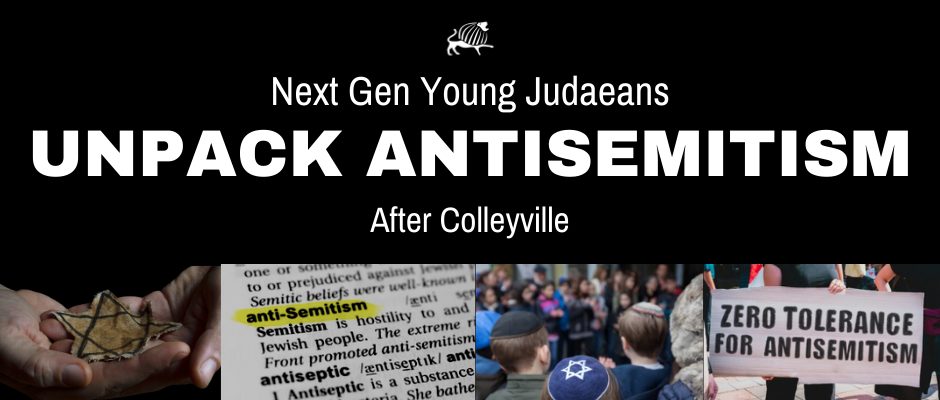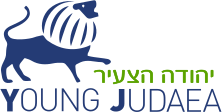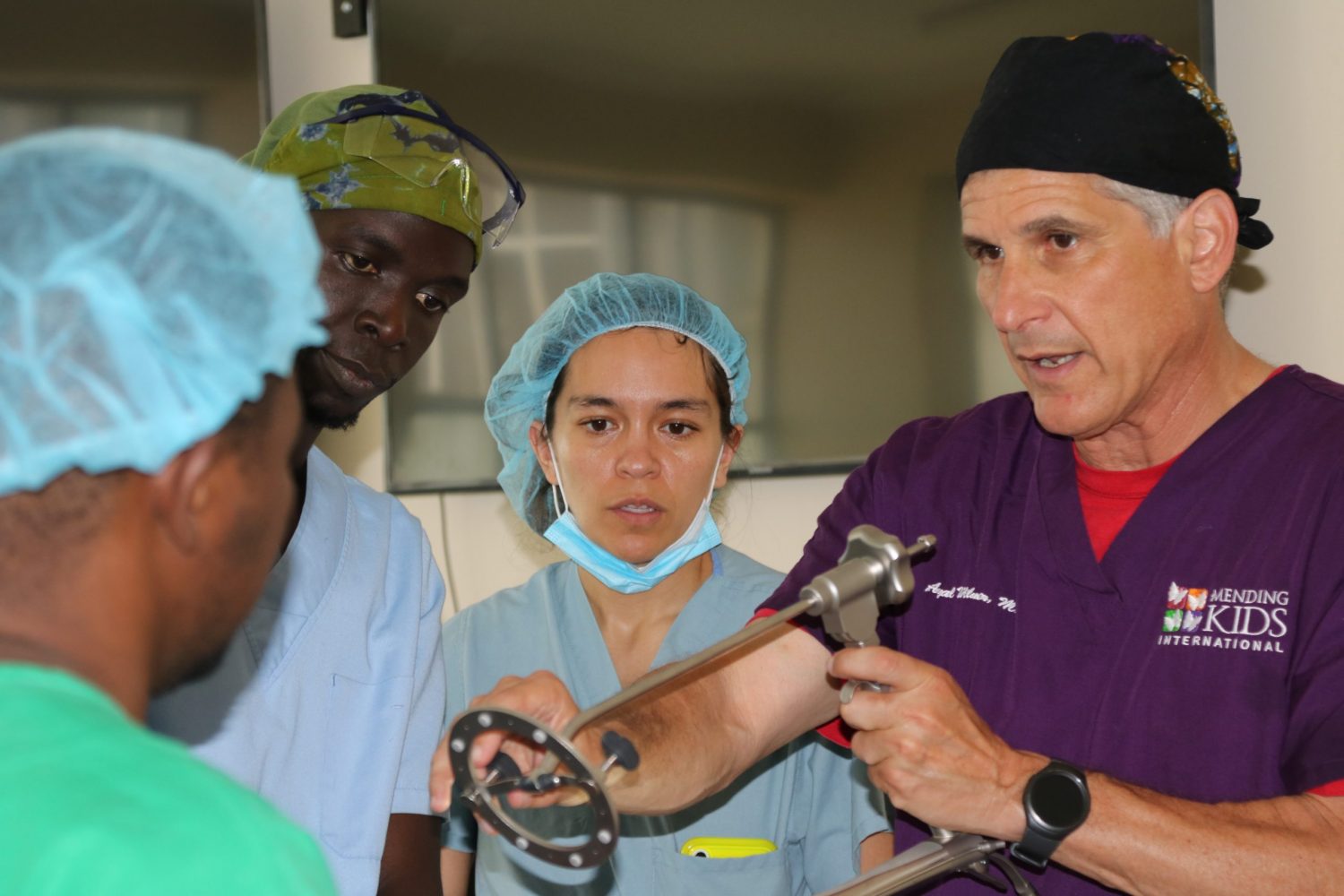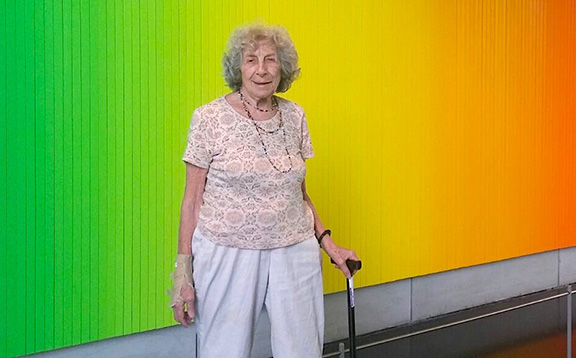
Next Gen Young Judaeans Unpack Antisemitism
This Thursday, January 27 is International Holocaust Remembrance Day. It has been nearly 80 years since the Holocaust began, and yet we are experiencing historic highs in anti-Semitic attacks throughout America and the world. Given the recent events in Colleyville, Texas, we reached out to four Young Judaea high school and college students to hear their responses to the event, and how they feel about the current state of antisemitism.
ABOUT OUR INTERVIEWEES

![]()
In the recent hostage situation at Colleyville, the FBI claimed the motive of the hostage-taker “was not specifically related to the Jewish community” leading to an uproar in response from Jewish leaders. Do you feel the incident was anti-Semitic?
LILLY: Yes, I feel that this incident was blatantly anti-Semitic. You cannot claim for this attack to have “no connection to the Jewish community” while attacking and holding them hostage in their house of worship.
AKIVA: Yes, and I believe to say this attack was not specifically targeting Jews would be to ignore the context in which this hostage situation took place.
JESS: Yes, absolutely. The hostage situation was at a synagogue during services, so I definitely consider that as a targeted act of antisemitism.
GIDEON: Yes. In an area like Colleyville it is significantly harder to scope out a synagogue, then a church or any other community gathering place. Had the terrorist wanted to carry his attack he could’ve picked anywhere but decided on a synagogue. Additionally, he claimed he was trying to free someone who blamed Israel and the US for many irrational claims.
Some feel that anti-Semitic incidents are often downplayed or misrepresented by the media. Do you agree with this?
LILLY: Yes, I feel like anti-Semitic incidents are often overlooked and not addressed by the media.
AKIVA: Yes, we are seeing it in particular with this situation where media outlets are reporting this as a “hostage” situation. Suggesting that it is not actually a hostage situation when that is exactly what it is.
JESS: Yes. I think that although it’s important to address all hateful incidents, sometimes anti-Semitic acts take the backseat to other issues or are otherwise misconstrued.
GIDEON: I think it was portrayed accurately and the media did what they could. The issue falls on society who refused to open their eyes towards antisemitism. Additionally, the response by the Jewish community has been weak as some sects refuse to acknowledge the legitimacy of Reform Judaism. It is hard to change people’s minds when we can’t figure out things ourselves
According to a 2018 survey by the Conference on Jewish Material Claims Against Germany (the Claims Conference), young Americans are displaying an alarming lack of knowledge about the Holocaust. Nearly 1-in-2 (49%) of millennials asked could not name a single extermination camp. Do you feel there is a lack of knowledge about Holocaust among your generation? Is this cause for concern?
LILLY: I do feel like there is an alarming lack of Holocaust awareness in my generation, and it is a huge cause for concern.
AKIVA: Lack of knowledge on the holocaust is an issue that is not properly addressed. We must make sure that people are well educated and informed so that they may recognize bigotry and inflammatory language in all contexts, as well as being able to spot similar developments in their early stages in the future.
JESS: There is definitely a lack of knowledge about the Holocaust among young Americans, partly due to a lack of proper, comprehensive education across our schools’ curricula. This is especially concerning because it contributes to a society in which antisemitism is normalized and deemed as less harmful or urgent than other forms of hate, as well as erases an incredibly painful piece of history for our people.
GIDEON: Yes. Unfortunately the Holocaust is often viewed as just another unfortunate event that happened during WWII. As the number of living survivors shrinks, uninformed young people will know less and less.
Jews are consistently the most targeted religious community in the U.S. making up 54.9% of all reported religious crimes last year, yet make up only 2% of the population. Why do you think this topic is not more widely discussed amongst social justice activists?
LILLY: I think that because Jews are not a visible minority the hate crimes towards us are mostly overlooked. Whether or not you are targeted doesn’t only rely on your skin color or ethnicity.
AKIVA: Often times the American Jewish community is synonymous with Israel, and it happens to be that many of the activists are staunchly anti-Israel. Therefore leading to a situation where fighting antisemitism in America is seen as supporting Israel.
JESS: Again, antisemitism is normalized and deemed as less harmful or urgent than other forms of hate in our society. That being said, hate is hate. Social justice activists might not consider all religious crimes as equal if they are not educated properly on the history of antisemitism, or if they are desensitized to it themselves. Also, many people simply might not know Jewish people, and are therefore less inclined to care. This does not excuse or justify the issue, but it a potential explanation.
GIDEON: I feel as if the subject of Israel diverts attention. Some may feel as if condemning anti-Semitism puts them on one side of the Israel argument which is not true.
During May 2021’s conflict between Israel and Hamas, the (ADL) tracked a 75% spike in antisemitic incidents in the U.S. Do you feel that hostility towards Israel and hatred of Jews are closely intertwined?
LILLY: Yes, people directly relate the conflicts in Israel to Jews and constantly blame Jews for the actions and decisions of Israeli leaders.
AKIVA: As I mentioned previously it seems that the media and activists alike have linked American Jewry and the actions of the Israeli government. While this is a cause for lack of support for the American Jewish community it is also used as justification for anti-Semitic acts, by saying it is for Palestinian rights.
JESS: Yes. I think a lot of Americans equate being Jewish with being a staunch supporter of Israel and all of its actions, so they channel any hostility towards Israel/its supporters to Jews in general. This is a major problem because not all American Jews share the same opinions on Israel, and it is very possible to support Israel’s right to exist while still being critical of the Israeli government.
GIDEON: Sometimes yes and other times no. When it becomes ok to disparage Israel it becomes ok to hurt Jews. Other times I feel as if people can draw a line.
Do you feel there is a generational difference in how you think about antisemitism and how your parents/grandparents think about it?
LILLY: Yes, the older generations like my parents and grandparents have felt a different type of anti-Semitism then I have. More of the anti-Semitism today comes through more in a form of hatred and hostility towards Israel. Today anti-Semitism is heavily spread through “social activists” and misinformation on social media platforms.
AKIVA: Yes, my view on antisemitism focuses less on stereotypes that were common in spreading anti-Semitic propaganda in the past and more focused on broad statements that have strong underlying anti-Semitic feels to them. Also, to me being critical of the Israeli government is not something that immediately signals antisemitism while to my grandparents it does.
JESS: I feel like there’s a generational difference in how I think about antisemitism versus how older members of my family think about it because they are just closer to the events of the Holocaust and have direct relationships with people who lived during that time. Although it’s still an issue I care deeply about and think about a lot, there’s more of an emotional connection for my grandparents’ generation because they knew more survivors personally.
GIDEON: I think my grandparents felt like it would all go away after we got Israel. Now it’s a different type of hatred.
What do you think your generation can do to help combat the rise in antisemitism?
LILLY: Education, and awareness about the hatred that Jews face on a day-to-day basis.
AKIVA: I feel that one of the strongest ways to combat antisemitism is through building and strengthening your own Jewish identity so that when you face antisemitism it does not takedown your identity as a Jew.
JESS: We need to first educate ourselves, then educate others. Also, I think it’s important to make addressing antisemitism an ongoing conversation. There will always be antisemitism and there will always be work to be done, but that also means we should not shy away from being proud Jews and talking about our identities and histories.
GIDEON: Education. People want to learn about the issues and will be tempted to change their minds if they see the truth.



